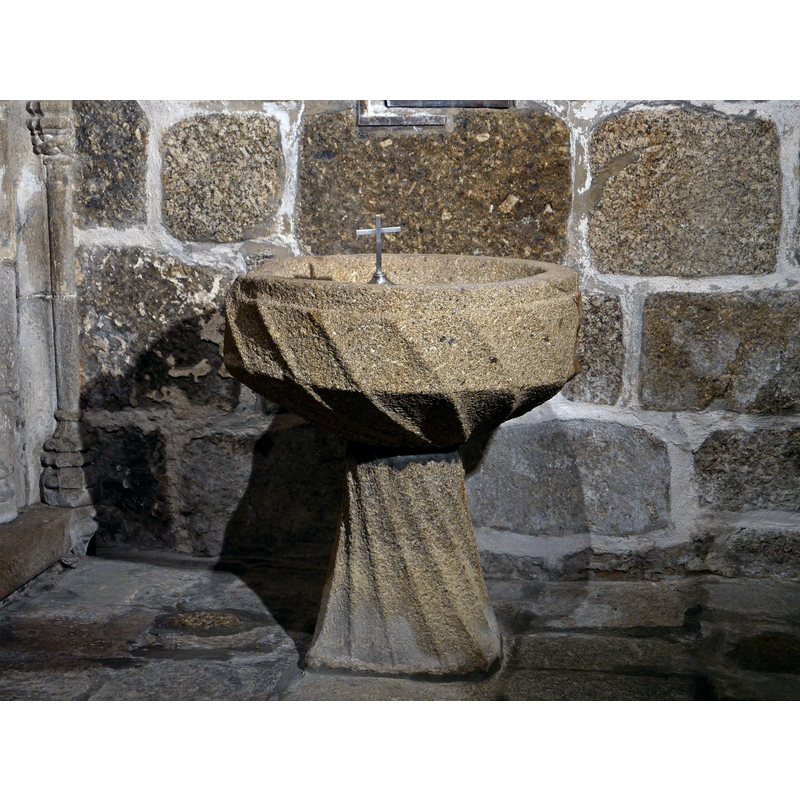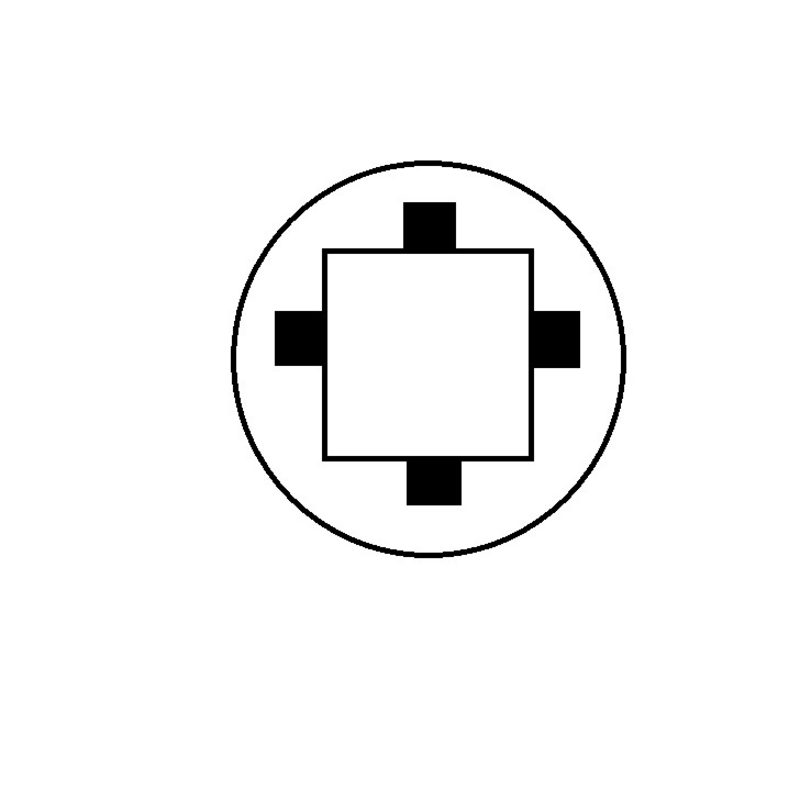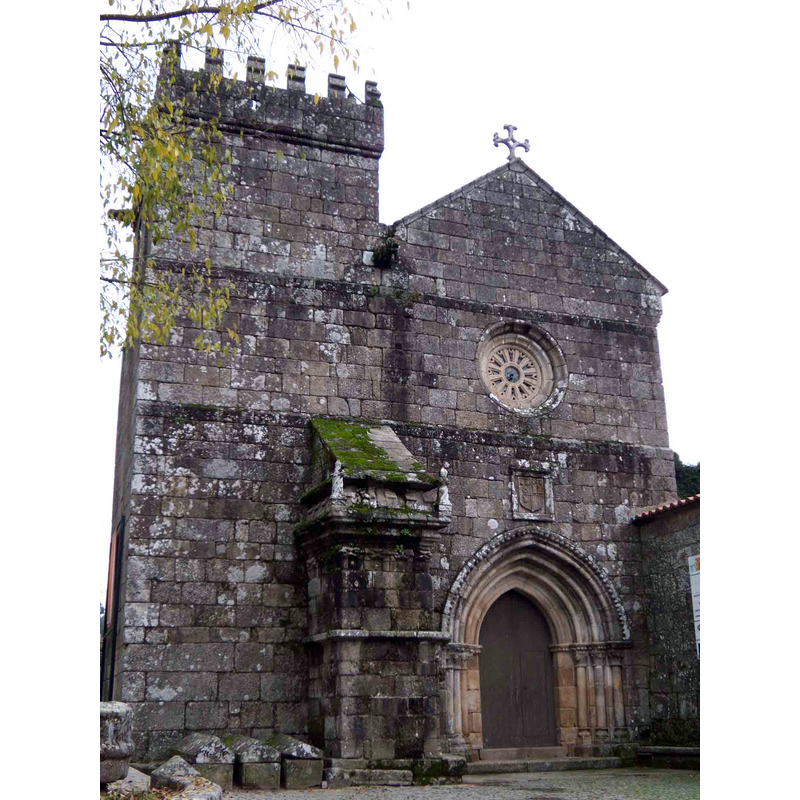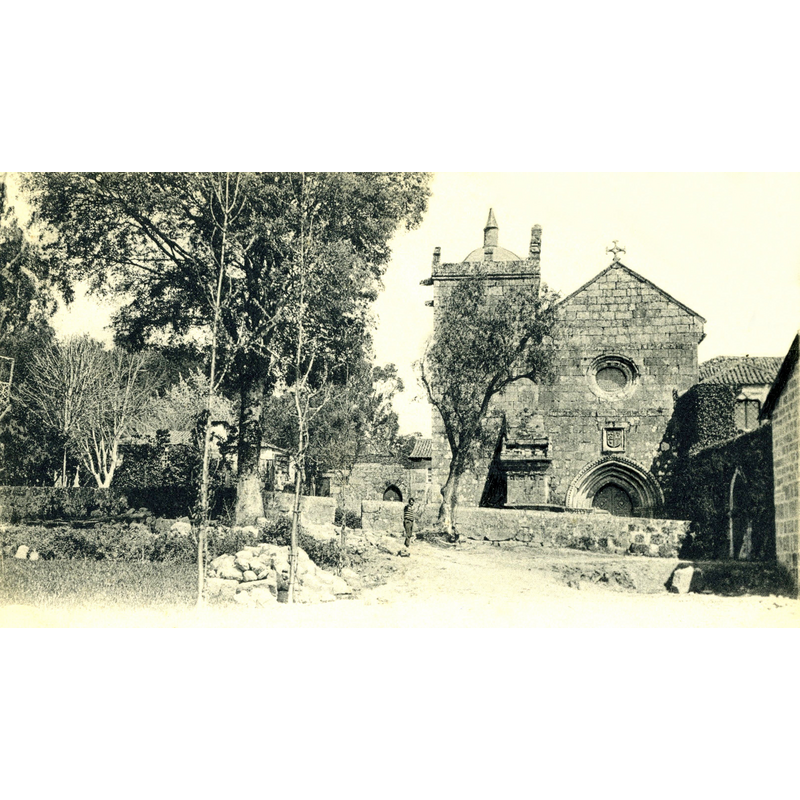Cete

Image copyright © Joost Limburg, 2017
Standing permission
Results: 13 records
view of font
view of basin - detail
view of basin - detail
view of church exterior - west end
Copyright Statement: Image copyright © Henrique Matos, 2009
Image Source: digital photograph 9 December 2009 taken by Henrique Matos [http://commons.wikimedia.org/wiki/File:Igreja_Cete_by_Henrique_Matos_02.jpg] [accessed 21 April 2013]
Copyright Instructions: CC-BY-SA-3.0
view of church exterior in context
Scene Description: west view of the monastery and church ca. 1905
Copyright Statement: Image copyright © [in the public domain]
Image Source: Personal collection old postcard, from family: "Monastère de Cete, à Cete, Paredes, Porto, Portugal. Carte postale de 1905" [http://pt.wikipedia.org/wiki/Ficheiro:Cete,_paredes._Mosteiro_em_1905.jpg] [accessed 21 April 2013]
Copyright Instructions: PD
view of object
view of object
view of object
view of object
view of font
Scene Description: baptismal font in the nave
Copyright Statement: Image copyright © IGESPAR, 2008
Image Source: digital image in IGESPAR [www.igespar.pt/pt/patrimonio/pesquisa/geral/patrimonioimovel/detail/70221/] [accessed 21 April 2013]
Copyright Instructions: PERMISSION NOT AVAILABLE -- IMAGE NOT FOR PUBLIC USE
view of basin - interior
view of church exterior - west portal
Copyright Statement: Image copyright © IGESPAR, 2008
Image Source: digital image in IGESPAR [www.igespar.pt/pt/patrimonio/pesquisa/geral/patrimonioimovel/detail/70221/] [accessed 21 April 2013]
Copyright Instructions: PERMISSION NOT AVAILABLE -- IMAGE NOT FOR PUBLIC USE
view of church interior - nave - looking east
Copyright Statement: Image copyright © IGESPAR, 2008
Image Source: digital image in IGESPAR [www.igespar.pt/pt/patrimonio/pesquisa/geral/patrimonioimovel/detail/70221/] [accessed 21 April 2013]
Copyright Instructions: PERMISSION NOT AVAILABLE -- IMAGE NOT FOR PUBLIC USE
INFORMATION
Font ID: 18427CET
Object Type: Baptismal Font1
Font Century and Period/Style: Medieval
Church / Chapel Name: Igreja de São Pedro de Cete [aka Igreja Paroquial do Mosteiro de São Pedro de Cete]
Font Location in Church: [cf. FontNotes]
Church Patron Saint(s): St. Peter
Church Notes: IGESPAR (ibid.) notes: "Iniciado por meados do século XII -- embora alguma tradição aponte que tenha sido fundado no século IX, a crer no que pretensamente se atesta num documento do ano de 882 citado por Jorge Rodrigues (Rodrigues, 1995, p. 245) --, é um vasto templo que se ergueu por iniciativa dos beneditinos cluniacenses e que, no início do século XIV, ainda era objecto de uma campanha ao nível da ábside, atestável no tipo de frestas, similares às de Paço de Sousa. A solidez volumétrica da construção, de óbvia sugestão bélica, bem patente na torre ameada e nas escassas frestas, permanece como memória dos sucessivos ataques e devastações a que o mosteiro foi sujeito. Após uma reconstrução efectuada em finais do século X, o mosteiro conhecerá, ao longo dos séculos XII e XIII, uma época de paz, conquistando independência tutelar entre 1121-1128 e concretizando ainda um sólido florescimento patrimonial nos primórdios da fundação do território nacional. Das reconstruções efectuadas por intervenção do abade Estevão I em inícios do século XIV resulta a permanência do traço românico da igreja, que se mantém até hoje; contudo, os elementos estruturais mais antigos remontam ainda ao século XII e estão perfeitamente documentados na simplicidade decorativa do tímpano no portal sul do mosteiro. "
Church Address: 4580 Cete, Porto, Portugal -- Tel.: +351 255 810 706
Site Location: Porto, Norte, Portugal, Europe
Directions to Site: Located off the CM1327, S of the A4, in the municipality and WSW of Paredes
Ecclesiastic Region: Diocese do Porto
Additional Comments: ***THESE THREE OBJECTS MAY NEED TO BE SORTED OUT INTO THREE DIFFERENT RECORDS WHEN WE HAVE MORE INFO***
Font Notes:
Click to view
IGESPAR [www.igespar.pt/pt/patrimonio/pesquisa/geral/patrimonioimovel/detail/70221/] [accessed 21 April 2013] notes a baptismal font of the 16th century in this church ["campanha quinhentista. Desta campanha subsiste ainda uma pia baptismal"], but illustrates two fonts, one in the funerary chapel ["capela funerária"] and another in the nave. Not mentioned in IGESPAR is an interesting object in the monastery garden, somewhat similar to an ancient baptismal font, but, given some of its characteristics (four side drains, uncharacteristic shape of the basin well, etc.), it may perhaps a fountain or lavabo of the earlier period of the monastery. [NB: local views of the use of this object appear to incline towards the font functio, as indicated in the following excerpt from a communication from Joost Limburg to BSI [e-mail of 15 October 2016]: "Re the minor update: A couple of years ago we've been discussing this strange object ("The Thing") outside of the church in Cete. Yesterday my friend Miguel Sousa, who used to work for the Rota do Românico, called to tell me he had revisited the church and talked with some elderly people from the village about The Thing. And they confirmed that it used to be the old font of the church. Of course this is hardly scientific evidence, but hopefully enough to convince to R do R staff to investigate it further - at least Miguel said he will try and urge them to do so."
Credit and Acknowledgements: We are grateful to Joost Limburg, of www.romanicoportugal.com, for his help in documenting this site, photographs included
COORDINATES
UTM: 29T 552719 4558432
Latitude & Longitude (Decimal): 41.175523, -8.371477
Latitude & Longitude (DMS): 41° 10′ 31.88″ N, 8° 22′ 17.32″ W
MEDIUM AND MEASUREMENTS
Drainage System: yes

![one of the four drain (?) holes [cf. FontNotes]](/static-50478a99ec6f36a15d6234548c59f63da52304e5/compressed/1130422001_compressed.png)


![[cf. FontNotes]](/static-50478a99ec6f36a15d6234548c59f63da52304e5/compressed/1130421031_compressed.png)
![[cf. FontNotes]](/static-50478a99ec6f36a15d6234548c59f63da52304e5/compressed/1130421030_compressed.png)
![[cf. FontNotes]](/static-50478a99ec6f36a15d6234548c59f63da52304e5/compressed/1130421029_compressed.png)
![[cf. FontNotes]](/static-50478a99ec6f36a15d6234548c59f63da52304e5/compressed/1130421028_compressed.png)
